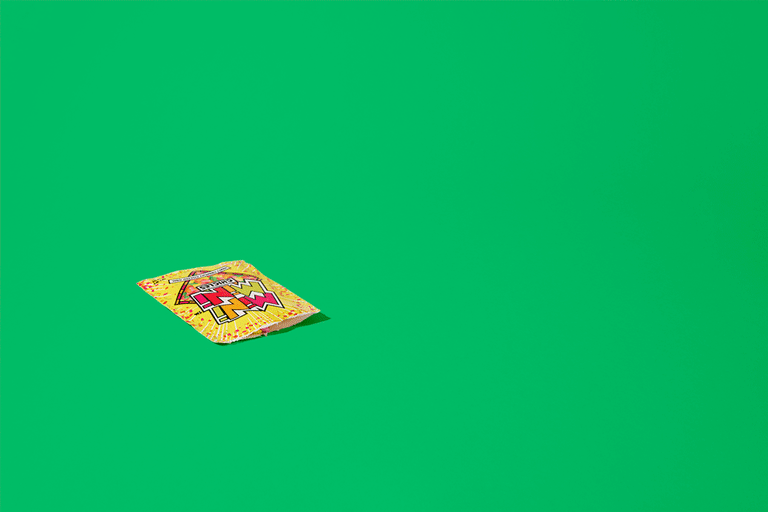
6 Weeks Pregnant
At week 6 of pregnancy, your baby is the size of a tiny Chiclet—and is starting to grow arms and legs.

By Babylist Staff
Medically Reviewed by Dr. Alyssa Dweck
In This Article
When you're 6 weeks pregnant, baby is the size of a piece of Chiclet gum (the tiny size). You’re at the beginning of the journey—just two weeks past your missed period—but you may be experiencing early pregnancy symptoms, which may remind you of premenstrual symptoms, like tender breasts, cramps and fatigue. Here’s what else you can expect at week 6 of pregnancy.
How Many Months is 6 Weeks Pregnant?
6 weeks pregnant in months is 1.5 months pregnant, which is part of the first trimester of pregnancy. If you're curious about calculating your due date, try our due date calculator.
Your Baby at 6 Weeks
Though it’s still very early, baby is starting to develop many new things, including blood circulation and cardiac activity. Here are some other highlights.
Scrunched up: Your tadpole-like baby has, yes, a tail (it’ll go away soon) and sits scrunched up, which is why doctors measure them head-to-rump for now.
Circulation: Blood has already started circulating, and a faint cardiac activity can sometimes be seen on an ultrasound (if not this week, then really soon)—it’s pulsing about 150 times.
Starting on arms and legs: Making their debut this week are tiny buds that will eventually grow into your baby’s arms and legs.
Safe haven: It’s easy to forget, but your baby isn’t the only thing your body is making right now. The placenta, amniotic sac and umbilical cord are key to growing a healthy baby, and they're forming to fully take on their responsibilities.
How Big is Your Baby at 6 Weeks?
Your baby is about 0.25 inches long and weighs about 0.04 ounces this week. That’s about the size of a tiny-size piece of Chiclet gum.
Your Body at 6 Weeks Pregnant
Now that you’re 6 weeks pregnant, you’ll want to call to make your first prenatal appointment. Your healthcare provider’s office will probably schedule it for 8 or 9 weeks.
6 Weeks Pregnant Symptoms
Here's what may be happening with your body this week:
Morning sickness
Pregnancy hormones start to flood your system around weeks 6 to 8, bringing with them nausea and vomiting. While they usually subside around 12 to 16 weeks, six to ten weeks is a long time to feel sick, so troubleshoot what makes you feel better, like eating small meals more often throughout the day (including first thing in the am), ginger candy, morning sickness candies, lemon sparkling water or salty chips. If it’s really bad and you feel like you can barely function (like you can’t keep liquids down, note your urine volume is dropping or feel weak or dizzy), talk to a professional.
“There are some prescription medicines that help with morning sickness, as well as stronger medicines that treat vomiting,” says Dr. Sarah Yamaguchi, an LA-based ob-gyn. Your healthcare provider can determine if that’s a good option for you.
Food aversions
Maybe you usually love burritos but now can’t be in the same room as them. The same hormones that cause nausea can heighten your sense of smell, causing some pretty intense food aversions.
Food cravings
On the flip side, you might find yourself longing for foods you wouldn’t normally pick. Apple juice and fried chicken? Yes, please! Sure, it’s a cliche that pregnant women love pickles and ice cream, but strange cravings are real—three in four people say they had them. No one knows exactly why.
Fatigue
Your body’s working hard to create a human and get used to those pregnancy hormones. No wonder you’re wiped out! It’s okay to get some extra rest right now; in fact, we recommend it. You should get your energy back in the second trimester.
Weird dreams
It's also normal to be having wackier, scarier or more vivid dreams than you did pre-pregnancy. Doctors say the rise in progesterone can cause insomnia, messing with your usual REM cycles. (Late in pregnancy, it could be stress, snoring or the need to pee that keeps you up.) When you wake in the middle of a sleep cycle, you’re more likely to remember your crazy dream.
Sore breasts
Increased blood flow and the beginning of milk gland development are probably making your breasts super sore or tender. Supportive bras and tanks can help them feel better, as can trading underwires for soft, supportive cups.
Spotting
A little bit of blood can be nerve-wracking but spotting during pregnancy doesn’t always mean there’s a problem. In fact, 20 percent of pregnant women have spotting in the first trimester—often as a sign of implantation—and it’s not usually a sign of an issue. Spotting means it’s lighter than a typical period—just a few drops here and there, as opposed to a flow—and the blood can be red, pink or brown. It wouldn’t be enough blood to cover a panty liner. If you’re experiencing more than that, or are concerned, be sure to call your healthcare provider.
No symptoms
Though the majority of people start to feel symptoms around 6 weeks pregnant, some don’t. Some don’t experience any morning sickness at all during their first trimester.
Pregnancy Symptoms Coming Up In Week 7:
Excess saliva, bloating or morning sickness are a few examples of symptoms you may expect in week 7 of pregnancy.
Fun Fact
During pregnancy, your uterus expands up to 500 times its original size. And it’ll take only about 6 weeks post-pregnancy to shrink back to it.
✅ 6 Weeks Pregnant Checklist
Tell a close friend or family member you’re pregnant. It’s comforting to have a confidant to share and commiserate with during the early weeks.
Stock up on a few morning sickness essentials: ginger or lemon drops, saltine crackers, mints, ginger ale or Gatorade could help. Keep a stash in your bedside and in your purse.
Start taking your prenatal vitamin if you haven’t already. Too nauseated to swallow one? Check out gummies or chewables and try taking them before bed instead of in the morning.
Add your healthcare provider’s office to your cell phone contacts.
Start a list of your biggest pregnancy questions that you can ask your provider at your first appointment.
Get extra rest. The fatigue and nausea of the first trimester may be ramping up.
Commonly Asked Questions About 6 Weeks Pregnant
Don’t feel pregnant yet? That’s okay! You will as the weeks go by. In the meantime, distractions help, as do good friends. Here are some questions people who are six weeks pregnant ask:
Should I tell people I’m pregnant?
You may not be ready to share your news with the world, but if you’re comfortable with the idea, telling a close friend can provide essential support during the early weeks.
How do I deal with bloating?
Bloating is real, and thanks to the extra progesterone pumping through your system, it typically starts long before your belly actually shows. Get comfy with a pair of pants you can slip on as soon as you walk in the door. An elastic waist will give you room to grow. Check out the ASOS maternity section, Motherhood or one of these other maternity brands for cute but affordable options.
What should I be doing with my time?
After week 6 is when the majority of people start to feel those pregnancy symptoms (read morning sickness and fatigue). So if you’re still feeling up to it, try to knock something off your list of to-dos. Clean out your closet, organize your pantry or finish up a small home-improvement project before your energy wanes. Of course, for many people, kicking up your feet and resting counts as a to-do. It’s hard to slow down when you’re so used to getting things done, but rest is important now (and always).
Recommended Products for Week 6 of Pregnancy
It’s never too early to start taking your prenatal vitamins. And although it may be a while before you start showing, you might want to stock up on some maternity wear essentials like leggings so you are comfortable as your body begins to change.
Sources
Placenta: How it works, what's normal. Mayo Clinic.
Anatomy: Fetus in utero. Johns Hopkins Medicine.
Umbilical Cord. Cleveland Clinic.
Medical expert: Dr. Sarah K. Yamaguchi.
About pregnancy. Sinai Health.


